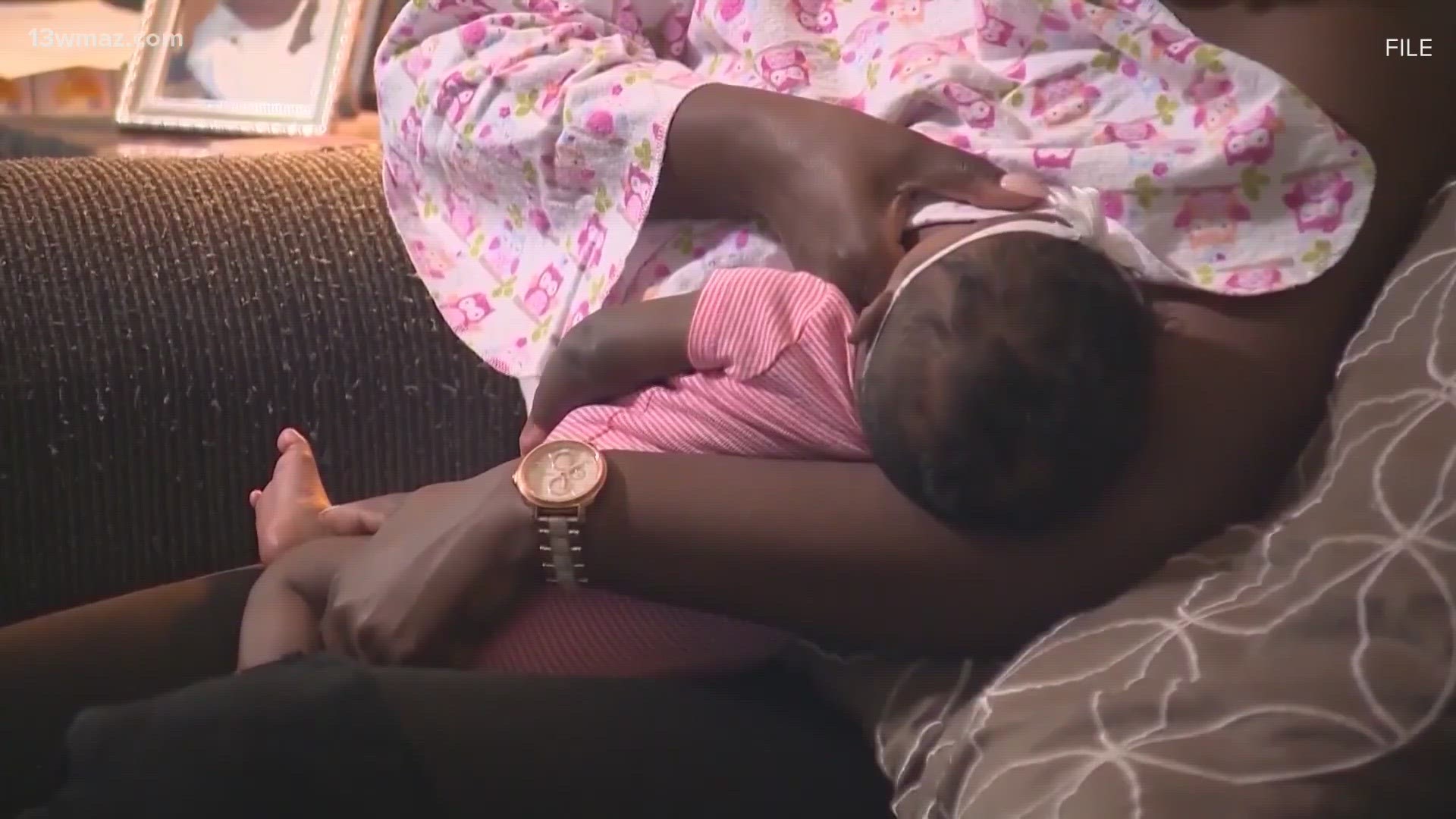WARNER ROBINS, Ga. — Between the high costs of diapers and inflation affecting groceries and gas, providing for your family can be pricey. The National Diaper Bank Network says diapers can cost $80 a month.
These expenses double for mother Latifah Joyce with newborn twins.
"It's a lot more expensive than 15 years ago, and then with double, my mom had to help me a lot this time," says Joyce.
To help lower-income working moms in the state, Governor Brian Kemp signed House Bill 129 expanding the Temporary Assistance for Needy Family Benefits.
The federal aid will cover working moms from the time of conception. Previously, mothers had to wait to receive funding until the child is born.
The amount you receive depends on your income and house size, but it will provide up to around $300 a month.
Joyce says she has experience with the program and isn't a fan.
"It's not worth it, and then you still have to work outside the home and do 40 hours a week, for $300 a month. It's not worth it," says Joyce.
"We're not going to save lives just because you gave some TANF, I'm sorry," says Patricia Prime.
Prime is registered nurse, postpartum doula, certified lactation consultant, and owner of Prime BabyTime Consulting.
The bill's goal is also to prevent maternal and infant mortality rates. The Center for Reproductive Rights says Georgia has the nation's highest maternal mortality rates.
Prime says the rate for Black women is even higher.
She believes the expansion for TANF isn't the way to help these rates.
"We have to do better in how we as a state take care of our maternal population," says Prime.
Prime says 60% of the deaths that relate to maternal mortality happen in the postpartum period. This could be until a year after a baby arrives.
She says better health includes many factors that last until after the birth.
"It's the pregnancy. It's where you live. It's what you have access to. It's how you're taking care of yourself after you deliver your baby. It's who's in your circle to help you after you have had that baby. It's not just about receiving some funds because you're pregnant," says Prime.
Prime says support for Medicaid users has been extended in some ways, but she'd also like to see expansion folks to get doula, lactation, and postpartum services.
Plus, she says she want to see a more diverse background of people helping to make maternal health decisions.
"It's going to take a lot of us. I would appreciate African Americans, people of color, Indigenous people being at the table, so when these decisions are made, you have experience talking to you. We're giving you our experiences and information to make good on the promises you made to our state," says Prime.
She also has worries for how this will affect infant mortality.
"If we're doing this to entice someone to hold onto a pregnancy or a baby just because we're giving them money, who's going to be affected? Our infant mortality rates in Georgia are horrific. Does that mean those numbers are going to go up now?" says Prime.
Prime says she would also like to see better quality services made available to people on Medicaid.
The bill would also allow women already on welfare to be eligible for increased funds if they become pregnant again.

